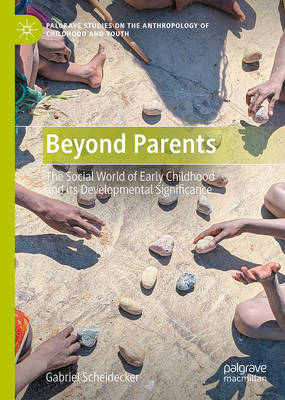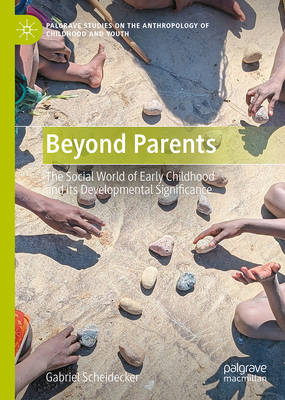
- Retrait gratuit dans votre magasin Club
- 7.000.000 titres dans notre catalogue
- Payer en toute sécurité
- Toujours un magasin près de chez vous
- Retrait gratuit dans votre magasin Club
- 7.000.0000 titres dans notre catalogue
- Payer en toute sécurité
- Toujours un magasin près de chez vous
Beyond Parents
The Social World of Early Childhood and Its Developmental Significance
Gabriel ScheideckerDescription
This book provides a detailed look into the social world of infants and toddlers and explores the consequences of that environment on learning and socio-emotional development. Drawing on long-term ethnographic fieldwork and systematic observation in a rural community in Madagascar, it shows that children there grow up in dense social networks from birth, surrounded not only by parents and siblings but also by peers, cousins, aunts, grandparents, neighbours, and more. It challenges dominant parent-centric frameworks that assume socio-emotional development begins in relationships with parents, which form the basis for a gradual expansion of children's social relations. By contrast, the multiple coexisting but distinct social relationships of young children in this study provide parallel developmental pathways. This enables them to acquire simultaneously hierarchical-interdependent and egalitarian-autonomous modes of relationships, emotion, and self. The book presents a powerful critique of mainstream developmental science and calls for a broader, more inclusive understanding of early childhood across cultures.
Spécifications
Parties prenantes
- Auteur(s) :
- Editeur:
Contenu
- Nombre de pages :
- 282
- Langue:
- Anglais
- Collection :
Caractéristiques
- EAN:
- 9783032057679
- Date de parution :
- 06-12-25
- Format:
- Livre relié
- Format numérique:
- Genaaid
- Dimensions :
- 148 mm x 210 mm

Les avis
Nous publions uniquement les avis qui respectent les conditions requises. Consultez nos conditions pour les avis.






